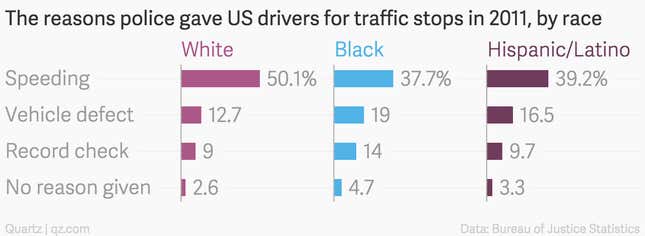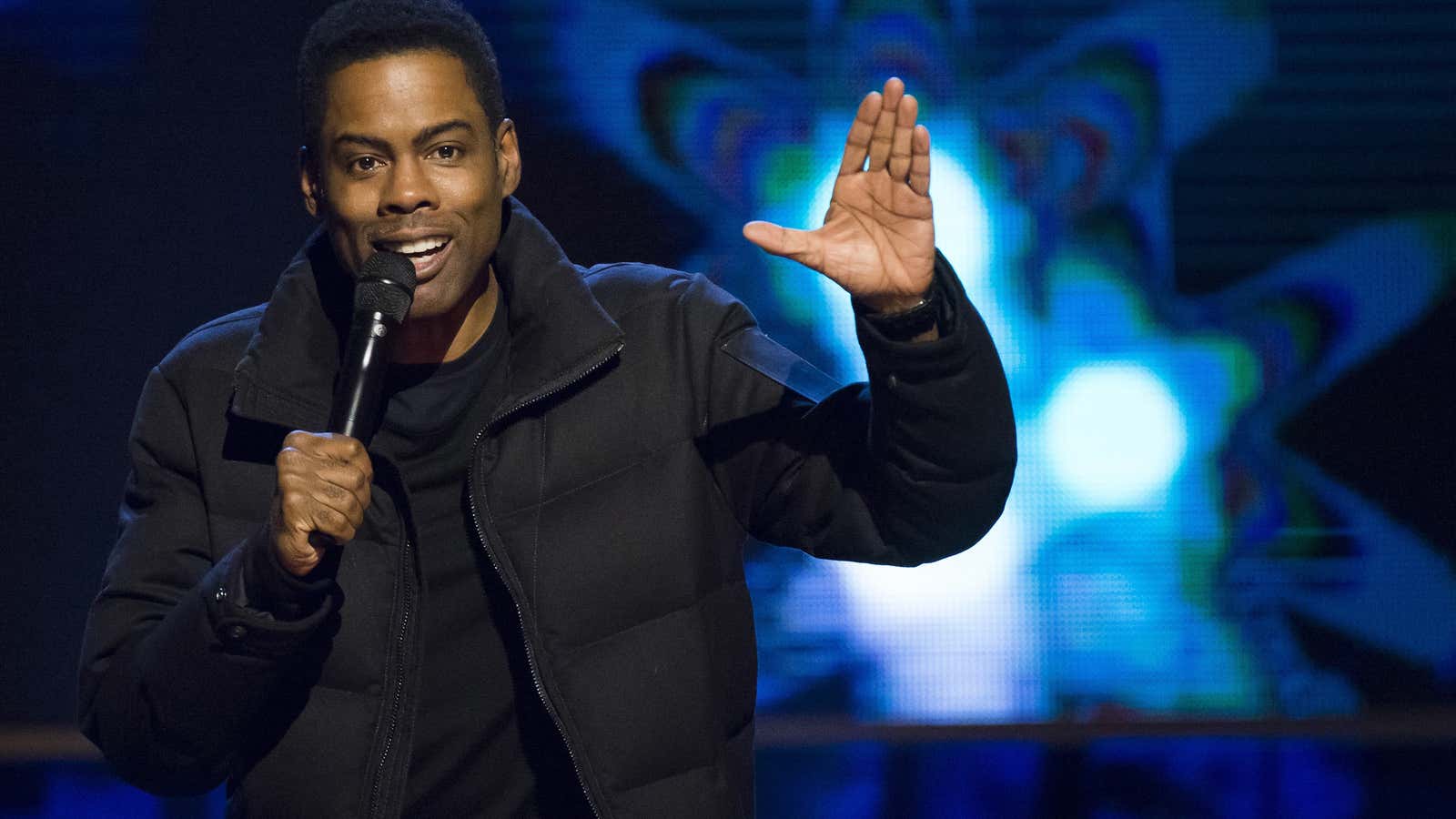Comedian Chris Rock posted this photo online earlier in the week, saying he was pulled over by police.
In the past few months he’s posted a number of similar photos.
He is creating a record of every time—or seemingly every time, we don’t know if there have been more—he is in a car that is pulled over. (In one of the photos, he was the passenger, not the driver.)
TakePart took notice of the photos, prompting a number of media outlets to cover it as well.
As the Washington Post points out, black drivers indeed are more likely than white drivers and Hispanic drivers to be pulled over—and Native American drivers get pulled over at even higher rates, but their injustices receive little attention, perhaps in part because there are far fewer famous Native Americans to bring attention to them.
Also notable are the reasons that people of different racial backgrounds are pulled over. Black drivers, for instance, are more likely than drivers of other backgrounds to be pulled over without being told a reason at all, according to the Bureau of Justice Statistics.

It’s unclear specifically where Rock was pulled over, or why. However, Rock has been talking about the effects of racial profiling for a long time. In 2008 he talked about the double standards he faces as a black man living in the wealthy neighborhood of Alpine, New Jersey.
“My house cost millions of dollars. … In my neighborhood there are four black people. Hundreds of houses, four black people. Who are these black people? Well there’s me, Mary J Blige, Jay Z, Eddie Murphy.” (According to 2013 estimates from the US Census, the borough of Alpine is home to 1,861 people, 2.6% of whom are black.)
The photos Rock has posted don’t have any context or explanation of why he was stopped, or where, or what happened next.
But in posting the photos publicly, sharing pictures instead of words, Rock—who in the past has drawn attention to racial injustice through his comedy—is now taking a different approach. And arguably, it’s a lot more striking.
